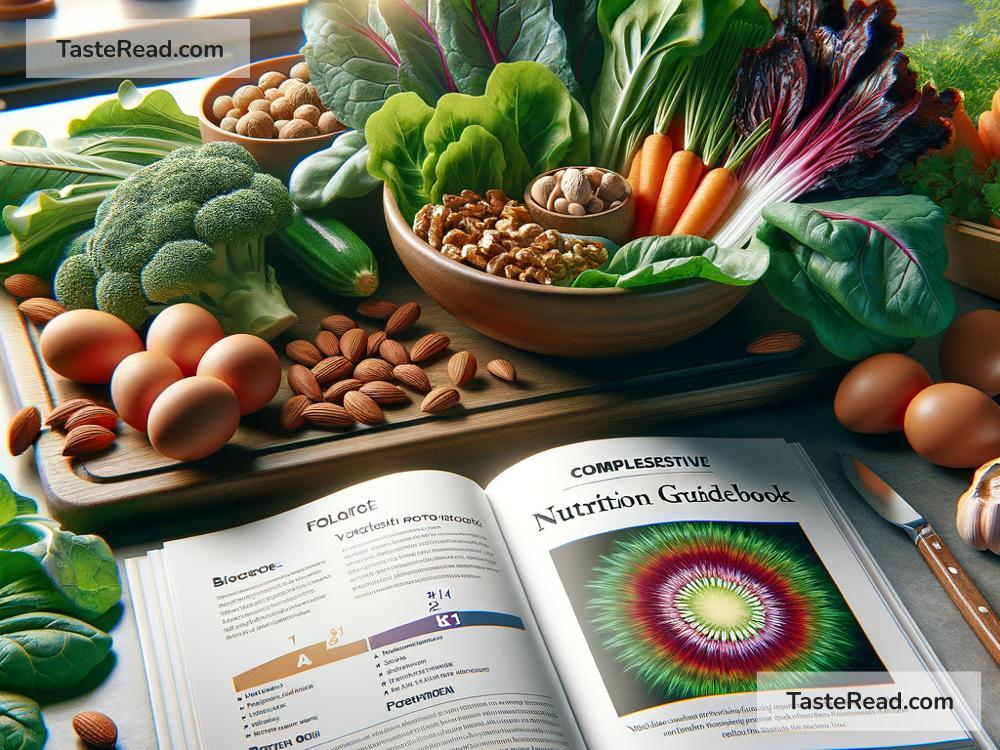The Role of Vitamin B11 in Metabolic Health
When we think about vitamins that keep us healthy, we often hear about Vitamin C for immunity, Vitamin D for strong bones, and even Vitamin B12 for energy. But there’s one vitamin that doesn’t get much attention: Vitamin B11. Even though it’s lesser-known, Vitamin B11 plays a crucial role in keeping the body’s metabolism running smoothly.
In this article, we’ll take a closer look at what Vitamin B11 is, why it’s important for metabolic health, and how you can make sure you’re getting enough.
What is Vitamin B11?
Vitamin B11 is also known as folinic acid or sometimes grouped with folate (Vitamin B9) because they’re closely related. Folinic acid is a naturally occurring compound in the body that plays a key role in various biological processes. It’s slightly different from folic acid, which is the synthetic form of folate found in supplements.
Just like other B vitamins, Vitamin B11 helps the body convert food into energy. But its role goes beyond just breaking down food. It’s involved in DNA synthesis, cell growth, and repair. That means it helps the body create new cells, which is essential for maintaining healthy tissues, organs, and overall functions.
Why is Vitamin B11 Important for Metabolic Health?
The word “metabolism” refers to the complex chemical processes in the body that keep us alive and functioning. These processes include breaking down nutrients for energy, repairing cells, and maintaining a balance within the body. Vitamin B11 plays a key part in these activities.
Here are some ways Vitamin B11 contributes to metabolic health:
1. Helps Produce Energy:
Vitamin B11 aids in breaking down proteins, carbohydrates, and fats that we eat so the body can use them for energy. Without enough Vitamin B11, the metabolic “engine” can slow down, leaving us feeling tired and sluggish.
2. Supports Healthy DNA and Cell Growth:
For the body to work properly, cells need to grow and repair themselves constantly. Vitamin B11 helps in the production of DNA and RNA, which are the building blocks of cells. This is especially important in rapidly growing tissues, such as during pregnancy or repair after an injury.
3. Assists in Detoxification:
One important metabolic function is detoxification—getting rid of harmful substances from the body. Vitamin B11 helps in the production of certain compounds that assist the liver in breaking down toxins, making sure they’re eliminated safely.
4. Works with Other B Vitamins:
Vitamin B11 doesn’t work alone. It teams up with other members of the B-vitamin family, such as Vitamin B12, to support healthy blood cell production and nerve function. These processes are essential for maintaining a fully functioning metabolism.
5. Plays a Role in Mental Health:
Your brain needs nutrients to stay sharp and healthy, and Vitamin B11 helps ensure it gets what it needs. Folinic acid supports the production of neurotransmitters, which are chemicals that allow brain cells to communicate. Healthy brain function is a big part of overall metabolic health.
Who Needs Vitamin B11?
Everybody needs Vitamin B11, but certain groups of people might need it even more:
- Pregnant Women: Growing a baby uses a lot of nutrients, including Vitamin B11. Folinic acid helps prevent birth defects in the baby’s brain and spine.
- People with Digestive Issues: Conditions like Crohn’s disease or celiac disease can make it harder for the body to absorb Vitamin B11 from food.
- People Taking Certain Medications: Some drugs, such as those used for treating cancer or autoimmune conditions, can interfere with Vitamin B11 levels.
How Can You Get Enough Vitamin B11?
The good news is that Vitamin B11 can be found in many healthy foods, so it’s not hard to include it in your diet. Foods rich in Vitamin B11 include:
- Leafy greens like spinach, kale, and broccoli
- Citrus fruits like oranges and lemons
- Beans, peas, and lentils
- Liver and other organ meats
- Whole grains and fortified cereals
If you think you’re not getting enough from food, supplements are also available. However, always consult your doctor before starting any new supplements, especially if you’re pregnant, breastfeeding, or taking other medications.
Signs of Vitamin B11 Deficiency
If your body doesn’t get enough Vitamin B11, you may experience fatigue, irritability, or a slower metabolism. Long-term deficiency could lead to more serious problems like poor immune function or difficulty concentrating. For pregnant women, low levels of Vitamin B11 could increase the risk of birth defects.
Final Thoughts
Vitamin B11 might not be as famous as some other nutrients, but it plays a vital role in keeping the body’s metabolism on track. From producing energy to supporting cell growth and detoxification, this nutrient is a key part of achieving and maintaining good health.
Make sure to eat a balanced diet filled with nutritious foods like leafy greens, fruits, and whole grains to meet your Vitamin B11 needs. With the right approach to nutrition, you can keep your metabolism running like a well-oiled machine.
Remember: small steps can lead to big improvements in your health. Start including Vitamin B11-rich foods in your meals today, and your body will thank you!


